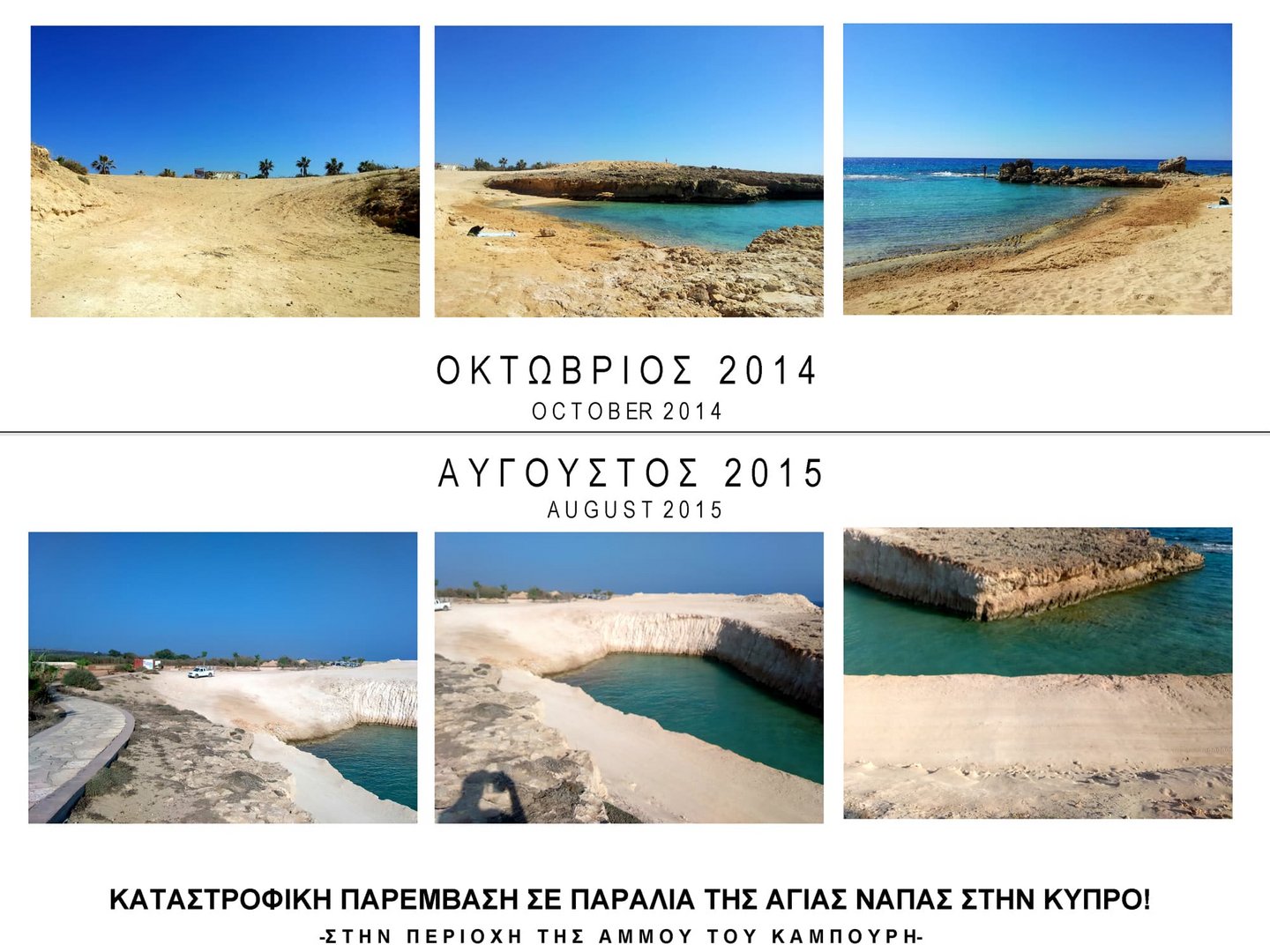By Jean Christou and Elias Hazou
Legislators on Thursday dubbed “a classic crime” the commercial development done in a protected area in Ayia Napa, saying the case merits attention from the police.
The remarks came after the House interior committee wrapped up discussion of the construction carried out in the ‘Ammos Tou Kambouri’ area in Ayia Napa.
MPs will compile a fact-finding report, based on testimony and documents presented during several parliamentary hearings. The dossier will be formally filed at an upcoming session of the House plenum.
The report, said committee chair Aristos Damianou, will include the names of persons involved in any way in the violation of the EU Habitats Directive when it came to construction projects around Cape Greco.
“We are of the strong opinion that serious violations of domestic law have taken place, as well as violations of the EU Acquis, due to institutional and political graft at the time,” the Akel MP said.
In the event the fact-finding report comes across potential criminal aspects, the material would be forwarded to law enforcement authorities.
Opposition lawmakers also blamed the previous administration of Nicos Anastasiades of caving in to special interests – meaning developers.
On Thursday, MPs heard that the department of the environment had defended the situation saying that everything was done in line with the provisions of the legislation.
The audit office previously said it had carried out an investigation after the environment department revised the conditions of a special ecological report into the area, increasing the number of floors and height of buildings allowed to be built.
It added that this revision had been issued without the publication of a supplementary report, therefore in effect not giving any formal reasoning for the revised decision.
To this end, it said the environment department “must rely on documented environmental data and ensure that each report complies with the provisions of the relevant EU directives”.
“If a supplementary report cannot be substantiated from a specifically environmental point of view with new data, the environment department must withdraw it,” it added.
It made reference to the plight of the greater sand plover, which faces the “loss and destruction of its habitat” should too much construction take place in the area.
And the breach of EU law could land Cyprus in trouble with the European Court of Justice, the auditor-general said.
In parliament on Thursday, an official with the audit office said a key new finding relates to a formal proposal put forth to the department of fisheries, to the effect that the conservation area for the Mediterranean monk seal should be expanded. Their proposal was not adopted.
Grilled by MPs, a representative of the department of the environment said they had reassessed the cumulative impact on the area following a cabinet decision rescinding the building incentives granted relating to environmentally sensitive locations. This, while not being “a scientific data point”, was significant enough to allow for a reassessment of the cumulative impact.
But asked whether the department’s reassessment – as put in writing in a supplementary report – followed the process of public consultation, as required by law, the official said no. Instead, the matter was discussed at an ad hoc committee.
In his own remarks, Greens MP Charalambos Theopemptou described the interventions in ‘Ammos Tou Kambouri’ as “classic corruption, Cyprus-style”.
He said the marina in Ayia Napa was situated in a protected area (for birds), by “transferring” the habitat.
“When adverts appeared online, showing that the villas to built there would lie on the coast, with interventions [building works] in the area, no one did anything.
“And when they started the earthworks, in order to bring the coastline closer to the apartments, again no one saw anything.”
Developers had removed a natural block of rock in ‘Ammos Tou Kambouri’, effectively terraforming the area. Following the scandal that broke out last year, restoration works partially reinstated the site to its previous state.
The debate last year brought to the fore an old scandal connected to Malaysian fugitive Jho Low who obtained a Cypriot passport after coming to Cyprus in 2015. It transpired that he also made a €300,000 donation to the Church before purchasing property in the area which comes under protected zones.






Click here to change your cookie preferences